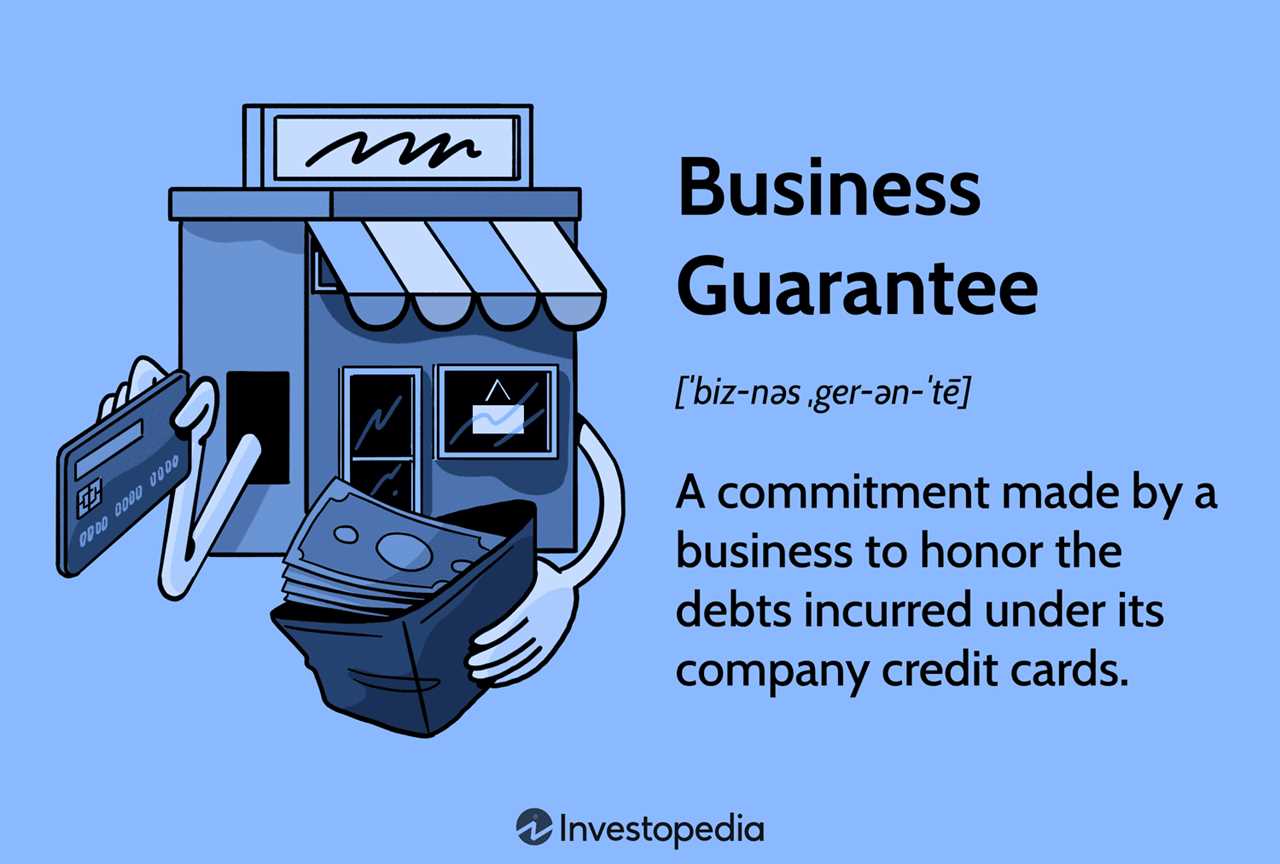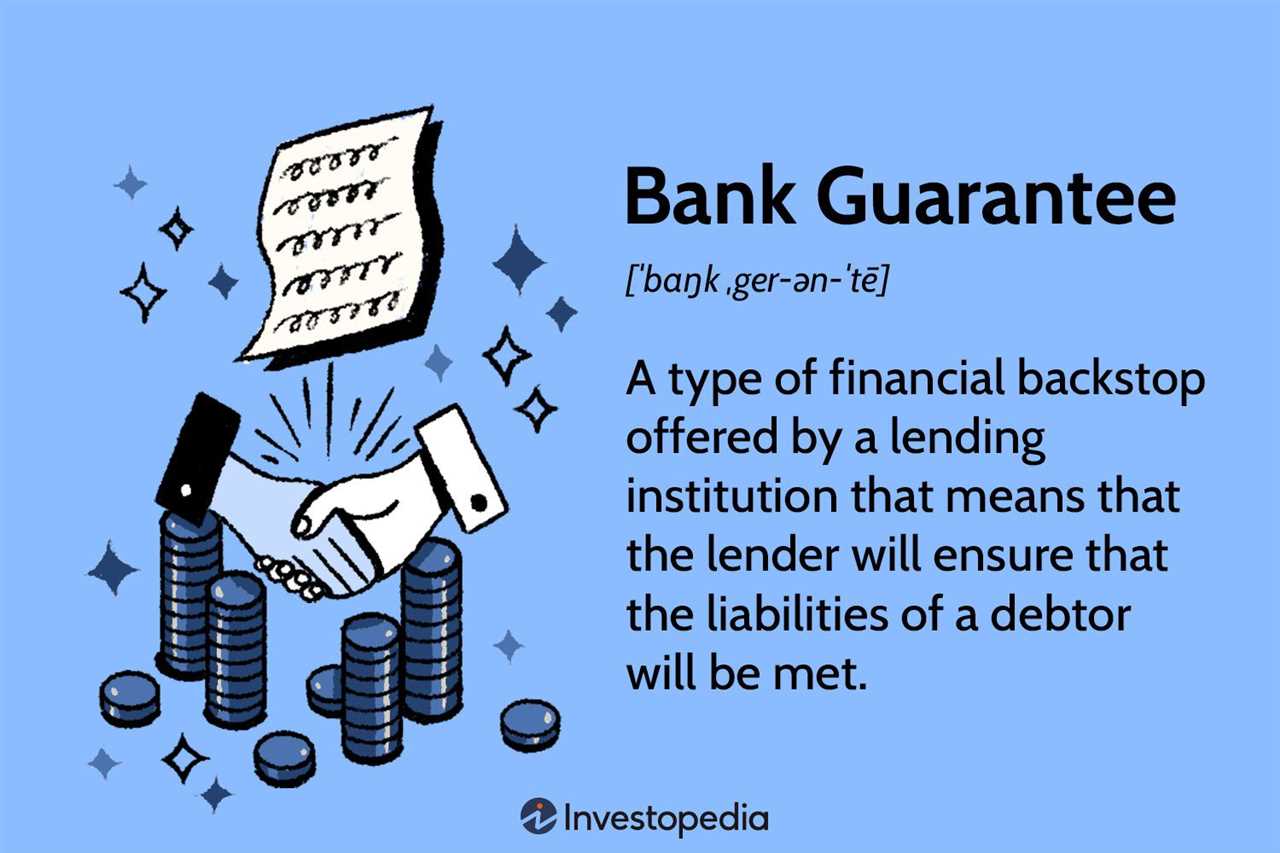Definition of Guarantee Company
Unlike traditional insurance companies, guarantee companies do not provide insurance coverage for specific risks. Instead, they act as a third party that assumes the financial responsibility for the obligations of their clients. This can include guaranteeing the payment of debts, the performance of contracts, or the fulfillment of other legal obligations.
Guarantee companies are often used in situations where one party requires assurance that another party will fulfill their obligations. For example, a contractor may require a guarantee from a guarantee company to ensure that they will be paid for their work, even if the client fails to fulfill their payment obligations.
Guarantee companies typically charge a fee for their services, which is based on the level of risk involved and the amount of the guarantee. They may also require collateral or other forms of security to mitigate their own risk.
In summary, a guarantee company is a financial institution that provides guarantees or sureties on behalf of their clients to ensure the fulfillment of certain obligations. They act as a third party that assumes financial responsibility and charges a fee for their services.
Mechanism of Guarantee Company
A guarantee company operates on the principle of providing financial security to its members or clients. It functions by pooling resources from its members to create a fund that can be used to guarantee the obligations of other members or clients.
The mechanism of a guarantee company involves several key steps:
- Membership: Individuals or businesses become members of the guarantee company by purchasing shares or paying a membership fee. This allows them to participate in the guarantee fund and benefit from the services provided by the company.
- Pooling of Resources: The guarantee company collects funds from its members and pools them together to create a guarantee fund. This fund is used to provide guarantees or indemnities to members or clients who require financial security for their obligations.
- Assessment of Risk: Before providing a guarantee, the guarantee company assesses the risk associated with the obligation. This involves evaluating the financial stability and creditworthiness of the member or client requesting the guarantee.
- Issuance of Guarantee: If the risk assessment is favorable, the guarantee company issues a guarantee to the member or client. This guarantee serves as a promise to fulfill the obligations of the member or client in case of default.
- Monitoring and Claims: The guarantee company continuously monitors the obligations of its members or clients to ensure they are being fulfilled. In case of default, the guarantee company pays the required amount from the guarantee fund to the beneficiary of the guarantee.
- Replenishing the Guarantee Fund: To maintain the financial stability of the guarantee company, members are required to contribute to the guarantee fund periodically. This ensures that the company has sufficient funds to meet its obligations.
The mechanism of a guarantee company provides a reliable and efficient way for businesses and individuals to obtain financial security for their obligations. It allows members or clients to access guarantees without having to provide collateral or other forms of security, which can be beneficial for small businesses or individuals with limited assets.
Overall, the mechanism of a guarantee company promotes economic growth and stability by facilitating trade and investment, reducing risks, and fostering trust among its members or clients.
Benefits of Guarantee Company

A guarantee company offers several benefits to both the company and its customers. Here are some of the main advantages:
1. Increased Credibility:
By opting for a guarantee company, businesses can enhance their credibility and gain the trust of potential customers. The presence of a guarantee demonstrates that the company is confident in the quality of its products or services.
2. Customer Assurance:
When customers see that a company offers a guarantee, they feel more secure in their purchase decision. They know that if they are not satisfied with the product or service, they have the option to seek a refund or replacement.
A guarantee can give a company a competitive edge over its rivals. It sets the business apart by showing a commitment to customer satisfaction and quality. This can attract more customers and help retain existing ones.
4. Risk Mitigation:
A guarantee company helps mitigate the risk for both the customer and the business. Customers are protected from potential losses if the product or service does not meet their expectations. On the other hand, the business can minimize the risk of negative reviews, returns, and legal disputes.
5. Improved Customer Loyalty:
When customers have a positive experience with a guarantee company, they are more likely to become repeat customers and recommend the business to others. This can lead to increased customer loyalty and long-term profitability.
6. Enhanced Brand Reputation:
A guarantee company can contribute to building a strong brand reputation. Positive reviews and word-of-mouth recommendations from satisfied customers can help establish the company as a trustworthy and reliable brand in the market.
Examples of Guarantee Companies
Guarantee companies are a common form of business organization that provide financial security to their members or shareholders. Here are some examples of well-known guarantee companies:
1. The Co-operative Group
The Co-operative Group is a UK-based guarantee company that operates in various sectors, including retail, banking, and funeral care. It is owned by its members, who have a say in the company’s decision-making process. The Co-operative Group is known for its commitment to ethical business practices and community involvement.
2. John Lewis Partnership

3. REI (Recreational Equipment Inc.)
REI is a guarantee company based in the United States that specializes in outdoor gear and clothing. It is owned by its customers, who become members by paying a one-time fee. REI members enjoy various benefits, including annual dividends based on their purchases and the opportunity to vote in the company’s board of directors election.
4. Nationwide Building Society
Nationwide Building Society is a guarantee company in the UK that provides financial services, including mortgages, savings accounts, and insurance. It is owned by its members, who have a say in the company’s decision-making process. Nationwide is known for its customer-focused approach and commitment to providing affordable financial solutions.
5. The Greenbelt Cooperative
The Greenbelt Cooperative is a guarantee company based in the United States that operates a grocery store and café. It is owned by its customers, who become members by purchasing a share of the cooperative. The Greenbelt Cooperative focuses on providing local, organic, and sustainable products to its members and the community.
These examples demonstrate the diverse range of industries and business models in which guarantee companies operate. They highlight the benefits of guarantee companies, such as member ownership, democratic decision-making, and a focus on social and environmental responsibility.

Emily Bibb simplifies finance through bestselling books and articles, bridging complex concepts for everyday understanding. Engaging audiences via social media, she shares insights for financial success. Active in seminars and philanthropy, Bibb aims to create a more financially informed society, driven by her passion for empowering others.
